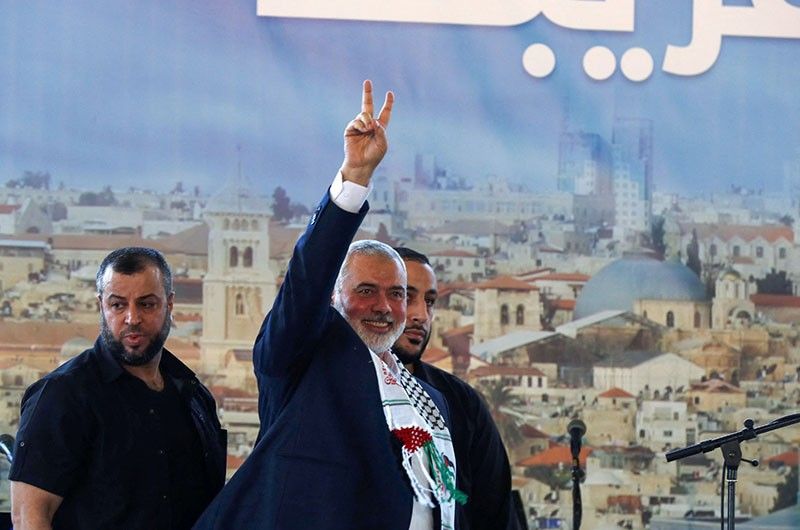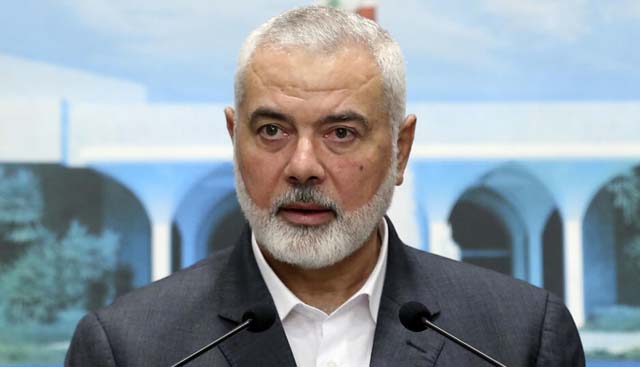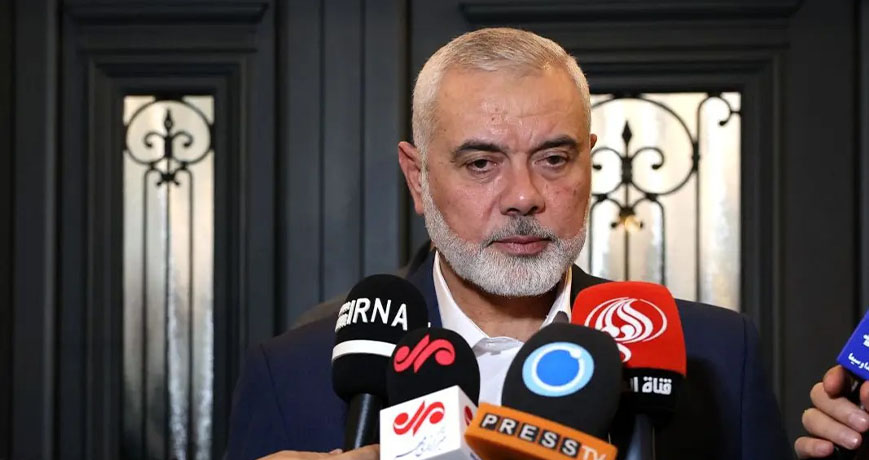Hamas leader Ismail Haniyeh was buried in Qatar just days after his infamous assassination in Tehran, Iran.
The ceremony in a large mosque near Doha saw attendance from senior Hamas officials and Qatar's Emir Sheikh Tamim bin Hamad al-Thani. Khaled Meshaal, tipped to become the new Hamas leader, was also present. Haniyeh and his bodyguard, killed in the same missile attack, were laid to rest in Lusail.

Senior Hamas official Sami Abu Zuhri, speaking to Reuters, condemned Israel, stating Haniyeh's death would significantly impact ongoing conflicts.
Did you read this?
According to Hamas official Khalil Al-Hayya, witnesses reported that a missile in a Tehran state guesthouse struck Haniyeh. Both Iran and Hamas have accused Israel of the assassination, promising retaliation. Israel has neither confirmed nor denied involvement.
This attack is part of a series targeting senior figures in Hamas and Hezbollah, raising concerns about the Gaza conflict extending regionally. U.S. President Joe Biden expressed that Haniyeh's killing hampers efforts for a ceasefire in Gaza, a conflict now in its tenth month. Qatar, alongside Egypt and the U.S., is leading peace efforts.

Haniyeh, seen as a moderate within Hamas, played a key role in international diplomacy and ceasefire talks. Appointed in 2017, he had been living between Turkey and Doha. Recently, the ICC sought arrest warrants for Haniyeh and Israeli Prime Minister Netanyahu over alleged war crimes, which both parties dismissed.
In Iran, Haniyeh's widow, Amal, mourned at his funeral. Hamas called for global prayers and denounced the assassination. Despite Israel not claiming the attack, it confirmed a recent airstrike killed Hamas military leader Mohammed Deif in Gaza, a claim Hamas hasn't addressed.
Hezbollah's military commander Fuad Shukr was also killed in an Israeli strike in Beirut, prompting Hezbollah to vow a measured response, signaling a new phase in their long-standing conflict.









